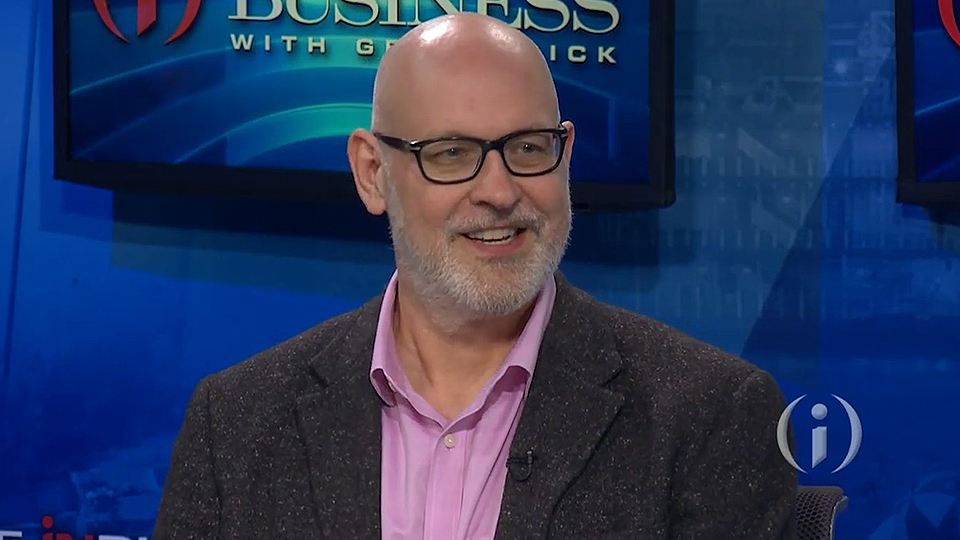Indiana Entrepreneur Critical of New Worker Training Program
Subscriber Benefit
As a subscriber you can listen to articles at work, in the car, or while you work out. Subscribe Now
An Indiana agency quietly launched a worker training program aimed at high-tech fields amid uncertainty about the effort eight months after it was pumped up with $75 million in federal COVID-19 relief money.
Legislators gave the state agency little direction on how to develop or run the Accelerate Indiana program as they scrambled to allocate Indiana’s share of the cash.
Now, entrepreneur Scott Jones, who pushed the program, is at odds with how it is taking shape and insists the state should model its program after a nonprofit group he started with the same concept of giving interest-free loans aimed at helping workers obtain short-term training certifications to advance their careers.
Eight of the 47 training courses approved as of late November are provided by Eleven Fifty Academy, a nonprofit organization created by Jones. Other approved programs are with Ivy Tech Community College and Vincennes University, Hoosier Occupational Training Services, C1 Truck Driver Training in Indianapolis and Community Health Network’s Visionary Health Group, according to INvestEd, the state’s college loan agency overseeing Accelerate Indiana.
Jones, who made millions from selling an early voicemail system and has started several companies, told The Associated Press that parameters set by INvestEd are “prohibitive,” however, and could stymie student and training provider participation.
His main qualm is with the $7,500 student loan cap workers can get to earn credentials in fields like logistics, construction and IT. Jones’ proposal to legislators set loan limits at $10,000, which he maintains is needed by training providers to meet the 75% student graduation rate and 65% job placement rate required by lawmakers.
But the legislation establishing the fund did not specify loan cap limitations. It sketches out a program under which participants enroll in courses such as computer programing, manufacturing, health care, logistics and aviation that take up to six months to complete and result in graduates finding jobs that pay at least 20% more than what they had earned. Recipients would repay the interest-free loans in installments based on their new monthly income.
Jones said INvestEd’s decision to shave the loan cap “takes away from historic legislation” that holds training providers accountable for high rates of student success upon entering the workforce.
“Here is another quasi-government agency not doing what was intended and messing up the model,” said Jones, who has been credited by lawmakers with brainstorming and advocating the idea behind the program. “They’ve strayed from this legislation that I carried for two and a half years.”
Bill Wozniak, INvestEd’s vice president of marketing, maintained that the cap established by the agency was “carefully considered” and decided by fiscal, postsecondary education and workforce development officials.
“The statute is silent on income share agreement amounts,” Wozniak told the AP, adding that most certificate programs across Indiana fall under $7,500, and that the cap was intended to remain below the annual tuition cost at state universities.
He also noted that the nonprofit has worked for months to create criteria and vet programs to ensure that each results in higher-paying jobs — a strict requirement from lawmakers. After training, if a participant’s income doesn’t increase — or stays below $42,500 annually — they won’t have to repay the loan.
Jones’ contention with the student loan scheme began earlier this year after the Career Accelerator Fund he launched in 2019 as a nonprofit pilot program was not turned over to the state as he had intended. That was instead used by legislators as a model, and Jones remains disjointed from the state-run program.
Jones, who has been a high-profile tech businessman in Indiana since the 1990s, told Indianapolis Monthly in a profile story that he has largely lost a $400 million fortune, blaming it on failed business ventures and a nasty divorce.
He says his nonprofit now focuses on assisting students to attend his Eleven Fifty Academy, a separate organization that trains students for tech-oriented careers. The fund holds roughly $10 million garnered from sources, including the Lilly Endowment, PricewaterhouseCoopers and JP Morgan Chase. The cities of Gary, Fort Wayne, Evansville and others have also made contributions.
“It’s a real deal … and it exists with a whole lot less constraints than what has come out of Accelerate Indiana so far,” Jones said.
Training programs approved by Accelerate from the Eleven Fifty Academy cover cybersecurity, secure networking and software and web development.
Courses from other training providers include CDL truck driver training, CNC machine operator programs, cloud systems administrator education, professional medical coder certification and credentials for certified production technicians.
As of late November, no loans have been issued, although the online application portal is open, Wozniak said.
None of the $75 million appropriation from federal COVID-19 relief funding has been drawn upon from the state, either, Wozniak said. INvestEd has instead borne the administrative costs of internal staff work and external legal counsel.
